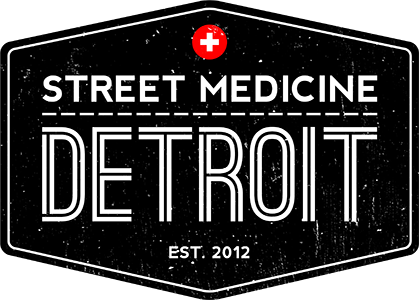Practicing medicine on the street, as one might imagine, poses a unique set of challenges for health professionals. In our particular case, with each street team being composed of approximately six individuals and our potential patient base in the tens of thousands, we have recognized the need to implement new methods in order to improve our efficiency, expand our reach, and provide the best possible care to each patient we encounter.
One major roadblock during street runs is our inability to access patient records during encounters. We often lack information regarding our patients’ past medical history, recent hospitalizations or physician visits, and insurance status. Further complicating matters is that some patients are unable to provide accurate or complete information. Unfortunately, learning only fragments of our patients’ health histories can hinder our attempts to form feasible plans for their health.
With this in mind, Vice President Sal Calo and Fundraising Co-Director Carolyn Chen have developed a grant proposal to obtain mobile devices and wireless Internet access for use on the street. With the fulfillment of this grant, we will be able to track details of each encounter at the point of care rather than waiting until after a street run to document information. Perhaps more importantly, we will be able to view complete medical records during patient interviews to determine the correct treatment plan for each patient and direct the patient to appropriate types of care depending on his or her insurance status. This will improve our ability to provide accurate diagnoses and continue treatments in a way that makes sense for each patient. With this improved efficiency we may also be able to help more patients over time, bringing us closer to reaching our goal of connecting as many homeless individuals as possible to viable primary care options.
In addition to this grant, we are incredibly fortunate to have partnered with Alana’s Foundation. They have offered to provide our patients with flu shots on a yearly basis, which will further reduce our patients’ discomfort and improve their health.
As we continue to grow as an organization, we hope to form strong partnerships in many areas of the community. Our continued success will depend heavily on the support of others, both logistically and emotionally. We are very excited about the opportunities we have encountered thus far, and we look forward to a day when we can all come together to serve those who are most in need.
Sarah Bommarito, MSI
Communications Director

